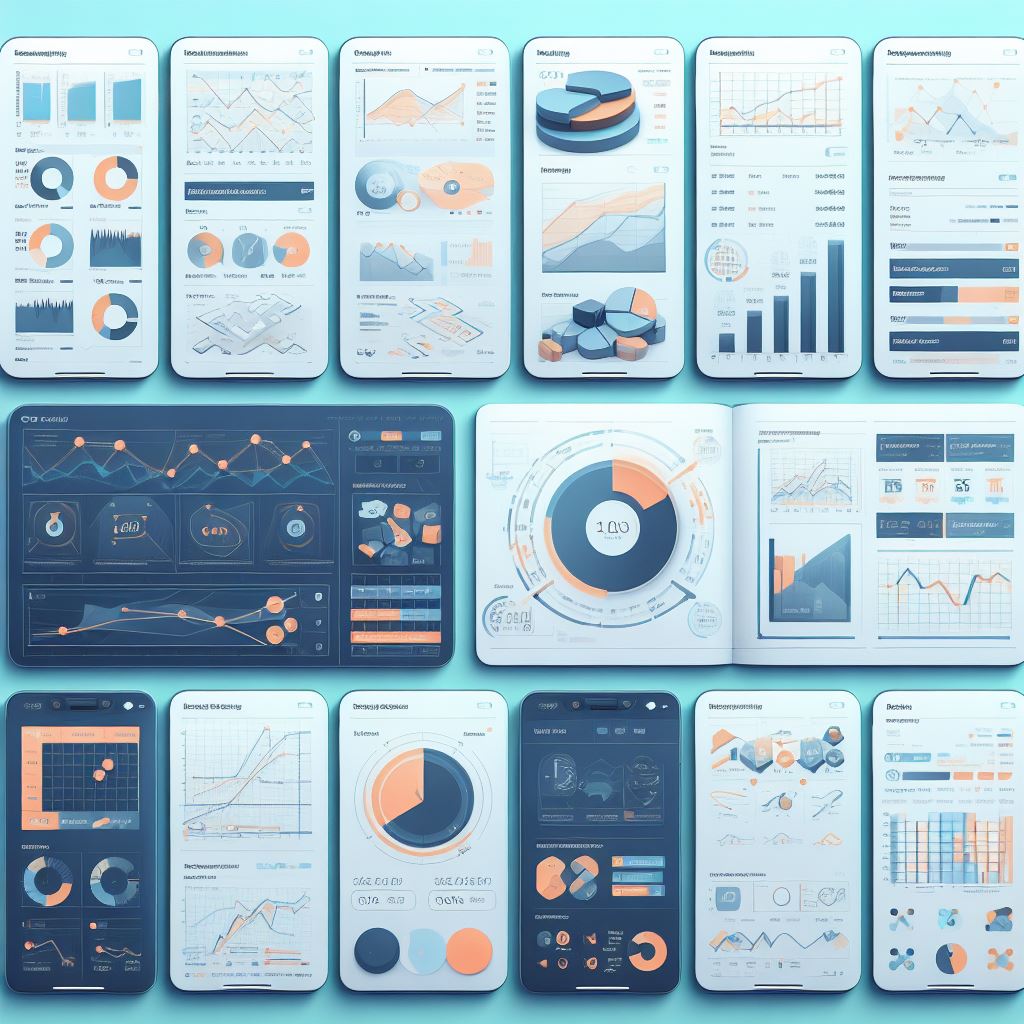
Understanding the value of mobile app analytics lies in appreciating their significant role in the world of app development. Entering this field without a firm understanding is like engaging a new arena without any background knowledge of the rules of the game. With the aid of mobile app analytics, developers are bestowed with invaluable insights into the behavior of the users.
These insights are crucial since they pave the way for better-informed decisions and strategic planning in terms of app content, design, and features. The analytics allow developers to pinpoint specifics, such as what features cause interest among users and encourage more interaction. On the other hand, it also highlights the features that do not sit well with the users or fail to engage.
There is much to gain from mobile app analytics. These findings do not merely serve to improve an app but are also significant for its growth. The data unraveled from these analytics is highly complex. It covers in-depth information about user behaviors, their interaction with different app features, time spent on the app, and many other data points. A good understanding of these analytics equips developers with the knowledge to drive user engagement and app downloads. Even small changes made based on these insights can lead to substantial differences in an app’s performance and popularity.
App developers looking to find success in this competitive field also turn to mobile app analytics. It is an essential tool that can help steer their development and marketing efforts in the right direction. It indicates precisely what works and what doesn’t, enabling app developers to build on the positives and eliminate or alter the negatives.
Harnessing the power of this complex data is what makes mobile app analytics so indispensable for developers worldwide. It is a factor that you can’t ignore when you aim for app improvement and growth. It’s an invaluable resource that goes beyond providing statistics and moves into the realm of shaping a user’s experience and satisfaction.
The field of mobile app development is intense and ever-evolving, and keeping up with it requires dedication, precision, and smart use of resources. One of those resources is mobile app analytics. It’s not just a tool; it’s an important aspect of the scenario that helps shape the course of app development while targeting user engagement and growth efficiently.
Practical Applications of Mobile App Analytics in App Development
Mobile app analytics play a key role in leveraging understanding of user engagement levels, which is undoubtedly one of the primary applications of this technology in app development. The specific areas within an application where users invest the bulk of their time, and subsequently, the trail they blaze throughout the app, deliver priceless insights. Armed with these data points, it becomes feasible for app developers to polish the user experience. This is achieved by paying close attention to these zones of heightened user engagement and putting in concentrated efforts to optimize these areas. Therefore, it’s accurate to say that mobile app analytics lay the groundwork for a user-centric approach in app enhancement and evolution.
The influence of mobile app analytics spirals into the world of marketing as well. By harnessing the power of user demographic information drawn from mobile app analytics, businesses gain the capacity to chisel their marketing drives. This allows them to aim at distinct user groups precisely, paving the way for efficient user acquisition. Consequently, the odds of users connecting with the specific offering increase multi-fold, offering a platform for businesses to maximize user acquisition campaigns.

Understanding churn rate and user retention lengths equips businesses with indispensable knowledge about the longevity of user interest. This, in essence, is about how long the users continue to find value in the app and aids in predicting future usage patterns. Such analytical insights prove instrumental in helping businesses formulate cogent strategies on revamping the app to nurture user retention. This, in turn, contributes to an increase in the lifetime value of their customers.
Mobile app analytics move beyond mere data collection; they shape the future course of app development, marketing strategies, and ultimately, business success. Employing them astutely leads to a robust mobile strategy, fostering long-term user relationships and promoting business growth.
The Potential of Mobile App Analytics for Future Growth
The concept of mobile app analytics harnesses untold potential for future advancement. The lifeblood of any app lies in its ability to evolve and adapt. Growth is a foundational pillar for survival, firmly rooted in an intimate comprehension of user behavior. This intricate understanding is nurtured through a potent mixture of mobile app analytics and a grasp of users’ preferences, which can guide the ongoing process of app development.
The function of mobile app analytics is not just volume or numbers; it has an integral role in facilitating the metamorphosis of the app to meet the shifting preferences of users. Combining information gathered from feature usage data and user feedback analytics maps the path that future development should follow.
This actionable insight becomes the compass guiding the app towards areas requiring enhancement. This process invariably improves user satisfaction, a key determinant of success, and thus propels the growth of the application. It’s an organic process of evolution, powered by data-driven insights, that allows an app to flourish in a competitive landscape.
A transformative trend in mobile app analytics is the emerging incorporation of predictive analytics. By applying intelligent algorithms and statistical models, predictive analytics holds the remarkable ability to foresee future user behavior patterns. The strength of predictive analytics lies not just in knowing what might happen but being able to leverage this knowledge to shape the course of development, thus raising user experience to a transcendent level.
This integration lends a futuristic approach to the whole spectrum of app development. It has the potential to act as a game-changer, taking mobile applications to unprecedented heights of sophistication, personalization, and effectiveness.
Mobile app analytics can substantially impact the overall performance of an app, underscoring its pivotal role in revolutionizing the field of app development. The continuously changing boundaries of innovation and efficiency are being further expanded with mobile app analytics as a front runner. The future of app development will be more data-centric, where insightful data analysis will become increasingly critical.
It’s evident that mobile app analytics is not just a nice-to-have facet but a powerful vehicle to propel growth. It’s a high-octane tool to hold and utilize for app enhancement. As we continue to embrace a more digital-centric future, this potent instrument of mobile app analytics will help us navigate the complexity of user requirements and preferences, and unlock unprecedented growth, shaping the future of the digital world we are part of. The future truly depends on this dynamic synergy of data, analytics, and application development, where every insight gathered fuels the next step forward.